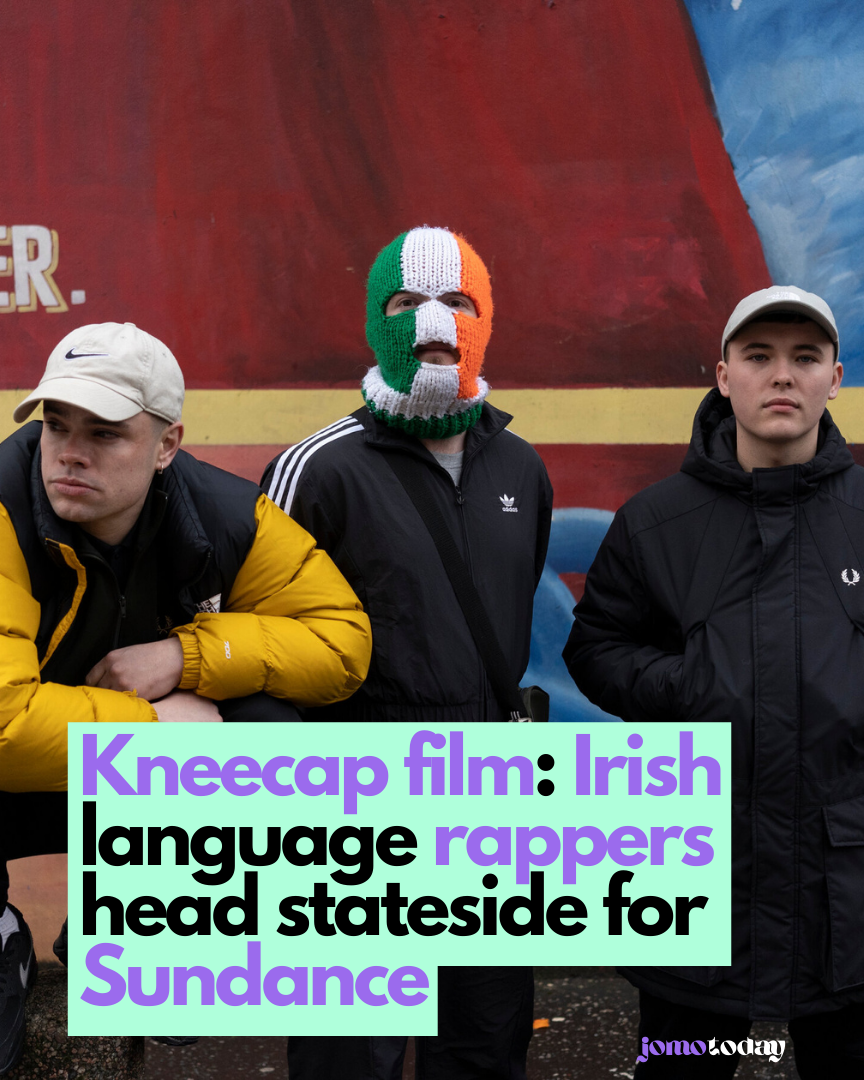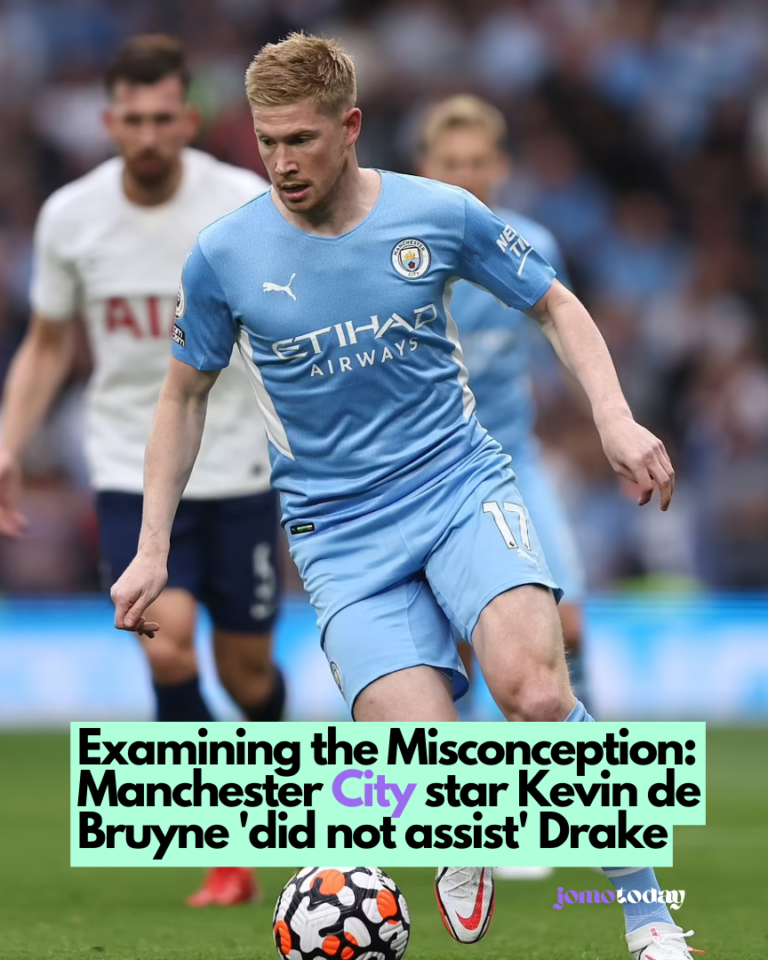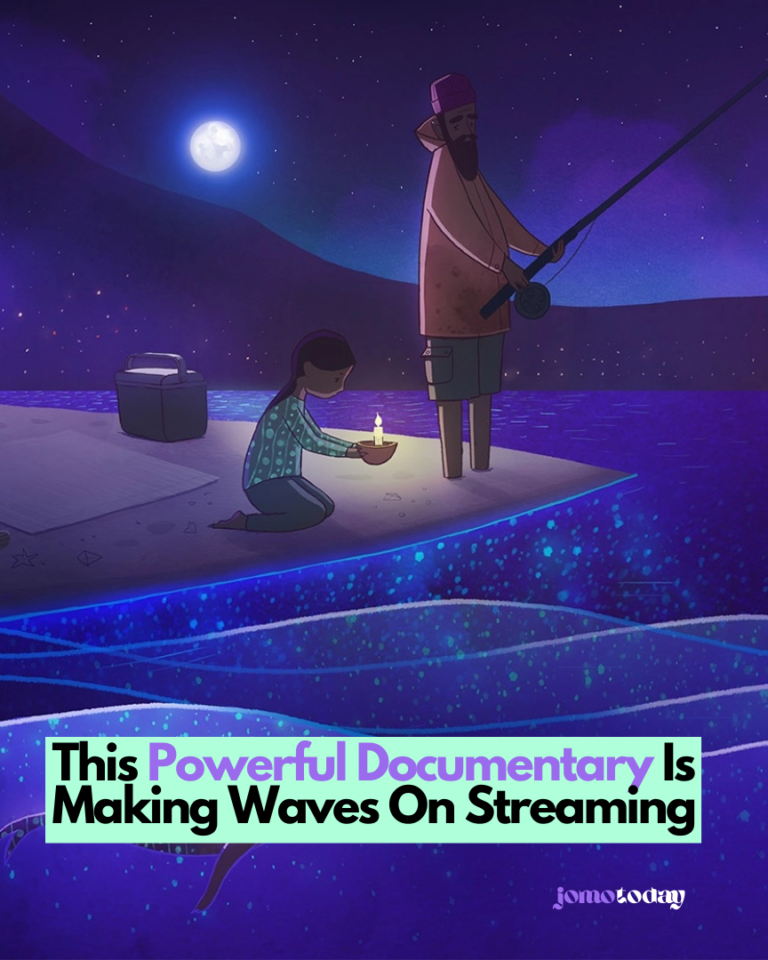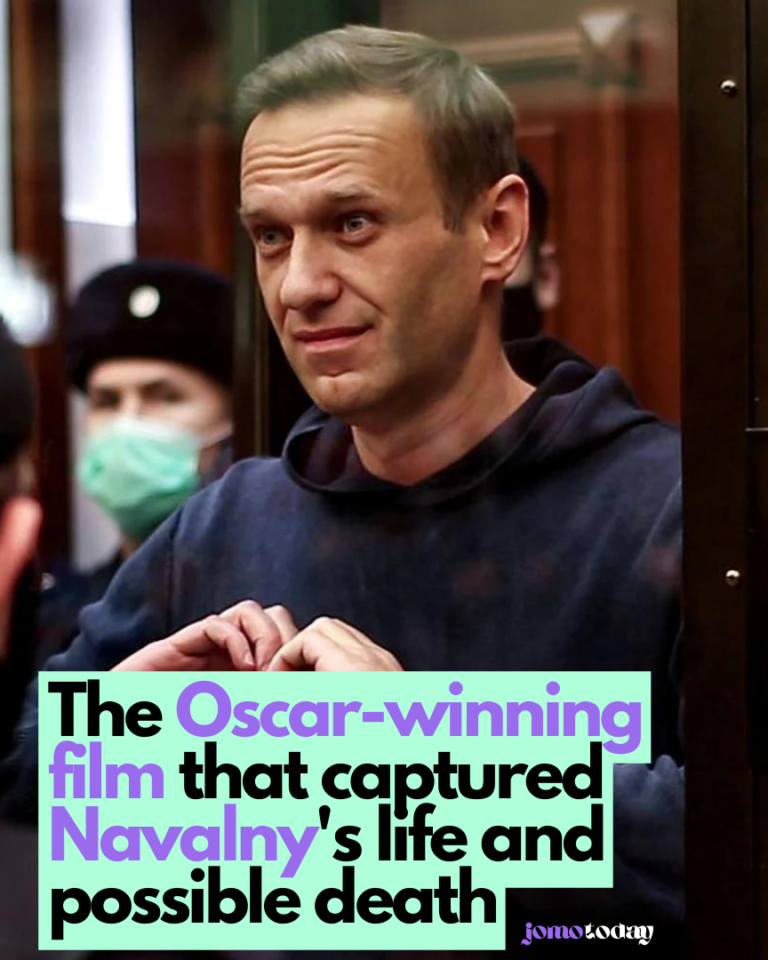Kneecap, an Irish language film, will make history as the first of its kind to premiere at the Sundance Film Festival, as Irish language rappers head to the States for the event.

Kneecap will become the first Irish language feature film to premier at Sundance Film Festival.
The Kneecap story, entwined with controversy, hip-hop, and the Irish language, is making its mark on the big screen as it becomes the first Irish language film to debut at the prestigious Sundance Film Festival. Titled “Kneecap,” the film features the rap group alongside Academy Award nominee Michael Fassbender and will be showcased in the festival’s NEXT section on its opening night. Filmed in Belfast and Dundalk, director Rich Peppiatt succinctly describes it as “definitely more controversial than the usual movies that come out of Northern Ireland.” Set in west Belfast in 2019, the movie offers a semi-fictionalized account of the group’s formation amid a rising demand for Irish language protections in Northern Ireland.
In 2019, the concept for a film took shape when Peppiatt witnessed the group’s performance in Belfast. The former tabloid journalist, known for his film “One Rogue Reporter,” where he confronted editors and prominent UK media figures over ethical concerns, expressed being “blown away” by the band’s “energy, authenticity, and the rawness of their performance.” Peppiatt admitted he was previously unaware of a community of young people in Belfast who embraced the Irish language in their daily lives.
He found this aspect particularly intriguing, especially against the backdrop of the Irish Language Act and the collapse of Stormont. In an interview with BBC News NI, he noted the captivating synergy between these elements, prompting his interest in exploring and depicting this unique cultural dynamic in a film.
He came up to the band, presenting the idea of a Kneecap film, but the group took their time in giving a response.
“Of course, when someone reaches out to you with ‘I want to make a film about you,’ you tend to brush it off because we used to receive a lot of eccentric messages from people. So, for six months, we didn’t really believe him,” shared rapper Móglaí Bap.
Eventually, the band agreed to sit down with Peppiatt, discovering that he was a “top-notch director.” What ensued was four years of collaboration and the development of a close friendship.
The film originated from extensive conversations held in pubs, where the focus was on understanding the group and uncovering their narrative, according to Pepiatt. Móglaí Bap highlighted that the director approached the project without preconceived notions about Irish or Belfast culture, opting instead to rely on the band to guide him in accurately portraying it—a decision that the rapper found to be truly refreshing.
Mo Chara, a member of the band, mentioned that Peppiatt grasped the necessity of being actively involved in it, especially considering he is not originally from Belfast.
“If someone who isn’t from Belfast writes a script, you can easily tell by the terminology they use – it just doesn’t feel authentic when you watch it on screen; it comes off as a bit cringey,” added DJ Próvaí, a masked member of the band.
Peppiatt, one of the band members, emphasized one of the film’s initial requirements: it had to be filmed in Irish. Soon after their first meeting, he committed to Irish classes, and within a couple of years, he proudly earned his fáinne – a pin badge symbolizing a certain level of fluency in the language.
The film’s inclusion in Sundance, a globally recognized platform for independent cinema, signifies a significant milestone for the project. Being the first non-US film ever chosen for the festival’s NEXT section, Kneecap is poised to be the second Irish language film to garner attention in the United States, following the success of the Oscar-nominated An Cailín Ciúin just a year prior.
Pepiatt expressed optimism about the Irish film industry, noting its current ascent. He emphasized the industry’s commitment to producing outstanding work and pushing creative boundaries.
Simone Kirby and Josie Walker are also featured in the film, alongside German-Irish actor Michael Fassbender, whose participation in the project significantly energized the entire endeavor.
“Michael received the script somewhat on a whim, but he responded positively, expressing his love for it and his desire to be part of it,” Pepiatt elaborated.
“He stands out as one of the most accomplished character actors in his generation. When you observe him performing on set, it becomes evident why – he exudes control, heightened awareness, and a strong presence.”
Móglaí Bap chimed in, saying, “Having portrayed Bobby Sands in Hunger, he had a personal connection to the entire narrative of the North.”
Despite facing disapproval and censorship for their politically-charged lyrics and penchant for controversy, the three-piece has not been deterred and continues to attract a following both in Ireland and internationally. They openly acknowledge their tendency to provoke and enjoy “getting people riled up.”
“We don’t receive sufficient criticism,” remarked Mo Chara humorously. “Everyone is too kind.”
Peppiatt expressed that he believes the band’s discussions are intricate, and when initiating the project, he was mentally prepared to encounter criticism for whatever direction they took.
“Kneecap is known for their decisive and perhaps controversial nature,” he remarked.
“As a band, they have stirred up considerable debate by fearlessly expressing their opinions on the past and the future direction of our community.
“We committed to creating this film in a manner that stays true to their spirit – being genuinely honest and presenting the often overlooked viewpoint of young people amidst the ongoing debates between DUP and Sinn Féin.
“Yes, the film delves into subjects that others may shy away from, addressing them in provocative and thought-provoking ways, but that’s the essence of art,” he emphasized.
Móglaí Bap added, “There’s a playful and fun aspect to it all, and if it offends you, perhaps you’re just not catching onto the humor.”
“It’s effortless for politicians to provide statements to the media about their perceptions of our work. However, it’s important to clarify that we neither initiated nor perpetuate sectarianism. Our artistic endeavors are not aimed at stirring controversy; rather, we operate in an environment where certain topics easily offend people.
Our intention is not to provoke but to foster a youth culture around the language. Similar misconceptions arise when using the Irish language in Northern Ireland, where it is often perceived as a political statement rather than a cultural expression. Director Pepiatt echoes this sentiment, hoping audiences recognize that the language isn’t confined to a rural demographic.
We take pride in our work and consider it a meaningful contribution to cinema history as we present the film at Sundance.”
Read More: Young Fathers, Gossip and The Smile to headline 6 Music festival in Manchester






1 Comment